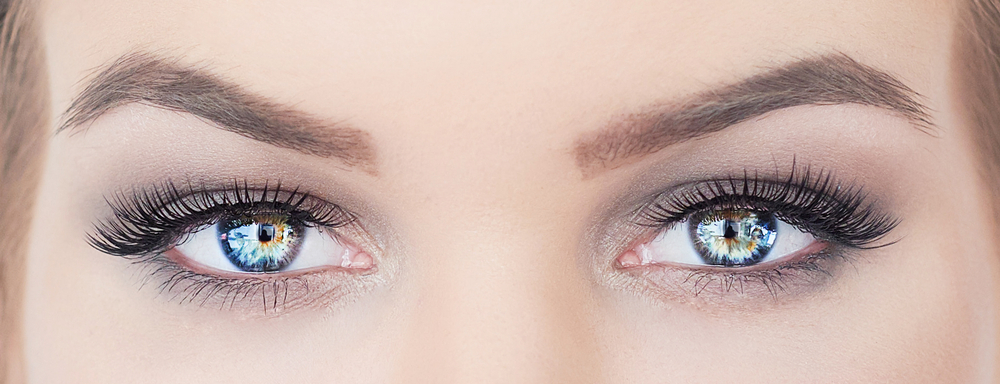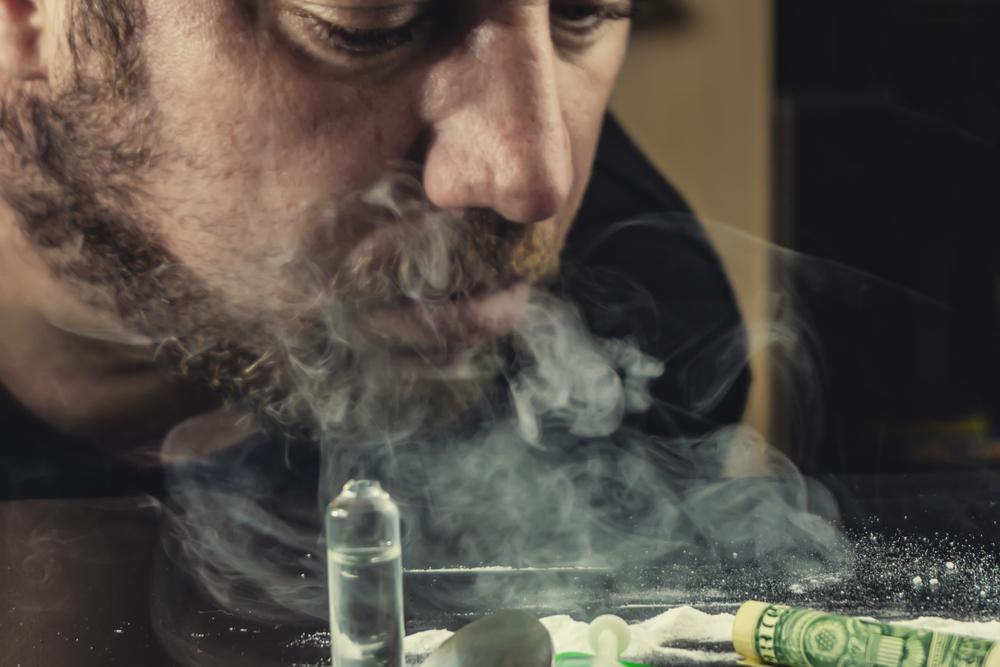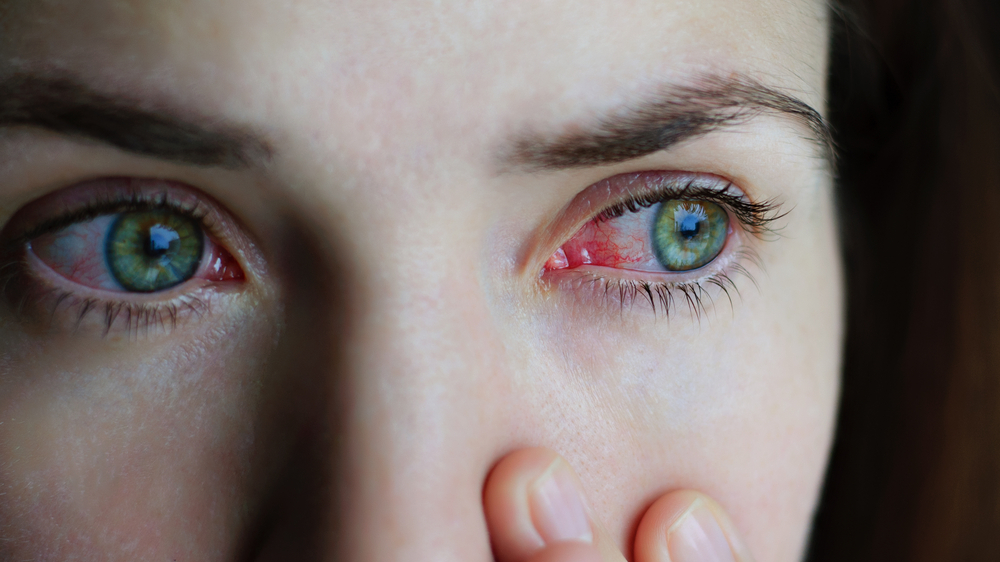


There are many different signs of drug abuse, some more common than others. Pupil dilation is one of the most common signs of drug abuse.
This article will discuss the various drugs that cause pupil dilation and what to look out for if you’re worried that your loved one is abusing or addicted to drugs.
Pupils are black circles found at the center of each eye. Usually, they constrict (become smaller) or dilate (become more prominent) when the light levels in your surroundings vary. The pupils’ primary function is to direct light to the optic nerve at the back of your eyes (retina), thus allowing you to see.
Eye muscles located in the iris are responsible for pupil dilation. They manipulate pupils and make them adjust depending on the amount of light.
Pupils measure 2-4 millimeters when constricted and about 4-8 millimeters when dilated. Therefore, your pupil size can vary depending on the circumstances.

Pupil dilation after drug abuse occurs when the drugs activate your body’s flight or fight adrenaline response by engaging adrenergic receptors in the brain and serotonin. This results in a chemical reaction that leads to muscle relaxation (mydriasis), making the pupils expand to allow more light in.
Several drugs can alter pupil size since most drug interactions in the body affect neurotransmitters which are your body’s chemical messengers.
Most drugs contain chemicals. Therefore, they cause chemical reactions in your body, affecting neurotransmitters. Since neurotransmitters determine your pupil size, they may dilate after drug use.
There are specific drugs that can cause eye dilation. Most of them are psychotropic substances and stimulants.
Some common drugs that cause pupils to dilate are:
· LSD
· Cocaine
· Ecstasy
· Mescaline
· Amphetamines
· MDMA
· SSRI antidepressants
Xanax, a benzodiazepine drug, can also make pupils dilate since it affects the activity of neurotransmitter GABA that relaxes the muscles. Additionally, the stimulant medication used in ADHD treatment, i.e., Adderall and Ritalin, can also cause pupil dilation.
Other drugs, specifically opioids, can cause pinpoint pupils. Pinpoint pupils refer to pupils constricting and failing to respond to light. Sometimes, pinpoint pupils are an overdose symptom. If you notice a heroin user has pinpoint pupils, it would be best to call 911 immediately.

Marijuana, alcohol, and cocaine cause bloodshot eyes when they expand the blood vessels around the pupils.
The National Institute on Drug Abuse has more information on the drugs mentioned above, including the effects of LSD.
When there is suspicion of drug abuse, there is a unique tool that officers or medical practitioners can use to determine pupil dilation and the most likely cause.
First responders use the Drug Recognition Card to determine whether or not an individual is sober. The International Association of Chiefs of Police invented the chart to quickly determine the pupil size difference between sober people and those high on drugs.
The Drug Recognition Card can also help first responders determine which drug is responsible for the dilation. It has a list of various drugs and a pupil dilation scale which helps officers gauge the extent of pupil dilation.
Besides light and drug use, pupils can dilate for the following reasons:
· Pupils can dilate if you focus on objects far away from you.
· If you get a concussion, one of your pupils may dilate. One of them will appear more prominent.
· Emotions. How you feel can make your pupils dilate. Most times, pupil dilation is a sign of endorphin release. If you’re happy, your pupils will appear more prominent.
· Anisocoria. Anisocoria refers to a medical condition where one pupil is bigger than the other.
· Iritis. Iritis is an eye condition caused by inflammation of the iris.
· Prescription medication. Some prescription medicines can cause pupil dilation. They include antihistamines, anticonvulsants, antidepressants, anticholinergics, decongestants, mydriatics, benzodiazepines, dopamine precursors, and stimulants.
If your pupils dilate due to drug abuse, you may wonder whether they would remain that way for good.
The pupils often go back to their original size when the drug side effects fade. However, there are a few instances when the pupils become dilated during the withdrawal period. This is common in individuals who abuse opioids.
Currently, there aren’t enough studies to conclude whether or not drug use can result in permanent pupil dilation.

When your pupils dilate due to drug use or for any other reason, it can be uncomfortable since the pupils let in more light. Everything may appear overwhelmingly bright, and you may be sensitive to most if not all sources of light.
You may need to wear protective eye gear to shield yourself from light. This way, you will be more comfortable walking around and doing day-to-day tasks. Photochromic lenses and sunglasses will come in handy. Sunglasses protect your eyes from the sun’s rays, while photochromic lenses automatically adjust your light levels.
If you’re worried about pupil dilation, you can contact an eye specialist who will examine you and advise you on eye health.
Although pupil dilation can be a sign of drug abuse, you cannot conclude that individuals have abused drugs by simply looking at their pupil size.
You may need to look out for other symptoms of drug abuse. The most common ones include; restlessness, unexplained mood changes, loss of appetite, increased heart rate, tremors, high blood pressure, heavy sweating, and change in sleep patterns. The individual’s performance at work or school may also be affected.
If you notice your loved one has any symptoms of drug abuse, it may be time to seek professional help.
At More Than Rehab, we acknowledge that abusing alcohol or drugs can have many side effects. Drug abuse affects your life and that of your loved ones. You are also likely to develop a substance use disorder.
To start your healing journey, contact us today. Other than addiction, we deal with co-occurring disorders like depression, self-harm, bipolar disorder, and ADHD. We will walk with you every step of the way and help you turn your life


